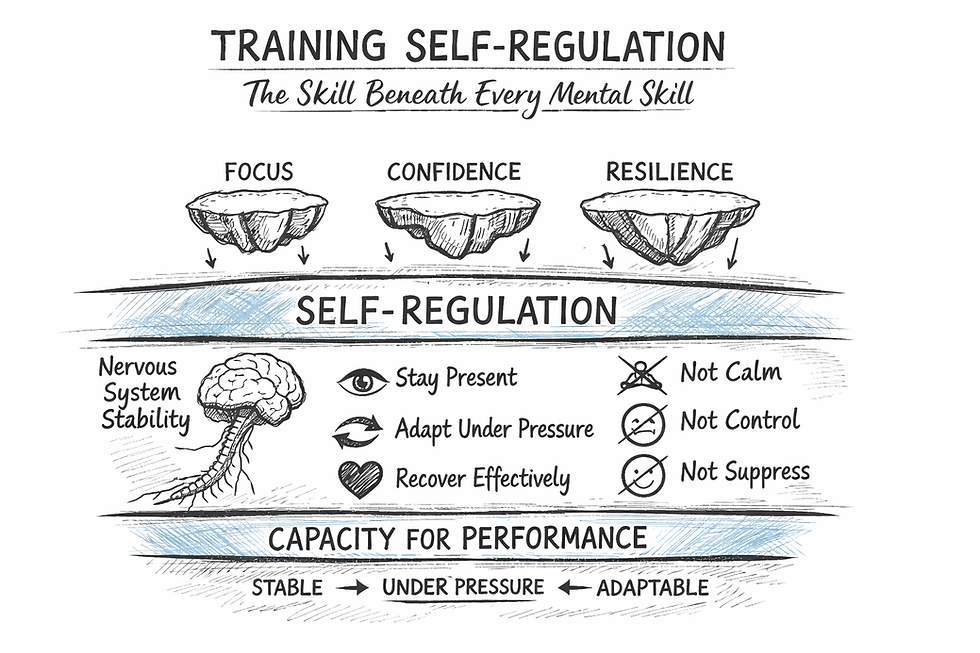Mental performance in sports: Focus on the controllable of your optimal performance behaviors
- Kate Allgood
- May 15, 2023
- 3 min read
Updated: Dec 18, 2023
There are very few things you can fully control in sports, but you can control your actions and behaviors. They are a fundamental element in your mental game. Too often, we let how we feel or how things are going to dictate our actions and behaviors rather than focusing on what we can control and consistently following through with them, regardless of how we are performing.
I like to explain this to clients by using the analogy of a traffic light. Each light represents a level of performance. Red = bad; yellow = okay; green = optimal. We have certain behaviors tied to each level of performance. For example, many athletes I work with in team sports will mention how much they talk when their performance is in green. They cheer their teammates on more; they are more vocal within the play. However, if their performance is in yellow or red, the amount they talk changes and sometimes completely stops. They are letting how their performance is going dictate their level of communication rather than focusing on continuing to communicate at the same level all the time, regardless of whether their performance is in green, yellow, or red.
To maintain your optimal level of behaviors or actions, first, you need to have identified what they are. What are the behaviors both around and within your sports environment and on an everyday basis. These actions or behaviors aren't going to be significant in nature; they will be similar to the example above with communication. If you know what they are, then it is easier to focus on doing them purposefully, even in difficult situations or moments.

Another example I will give within your competition comes from my experience. As a hockey player moving my feet is fundamental and one of the first things to look at if my game is off. I could get caught up in the by-products of not moving my feet, such as not being in the correct position, not getting scoring opportunities, etc. Or I could focus on moving my feet again. Outside of competition, examples could be things such as:
Icing
Stretching
Meditation
Amount of sleep
Amount of water to drink
Instead of wasting energy on the things you can't control or getting caught up in the story of how your performance is going, focus on what you can control and consistently do the things you tend to do when you are playing well; it will help you realign your performance and bring yourself back to green.
To your success,
Kate
To your success,
Kate
About: Kate Allgood is trained in the field of applied sport psychology. She holds two Masters degrees in psychology where she graduated with distinction. She has spent the past 14 years working one on one with high school, college, Olympic, and professional athletes to help them with their mindset, mental performance and mental skills training. Kate has also been a consultant for professional teams, including the Anaheim Ducks primary minor league affiliate the San Diego Gulls, to help the team and players develop their mental game. It is important to note that while Kate has graduate school training in applied sport psychology and general psychology, she does not diagnose or treat clinical disorders, and is not a licensed psychologist.
**The information provided is not to dispense medical advice or prescribe the use of any technique, either directly or indirectly, as a form of treatment for physical, emotional, or medical problems, without the advice of a physician. The information provided is only to offer information of a general nature to help you in your quest for high performance. If you know or suspect you have a health problem, it is recommended you seek your physician's advice.



Comments